Why Is My Air Conditioner Not Cooling the House: 8 Possible Reasons
-

- Last updated:
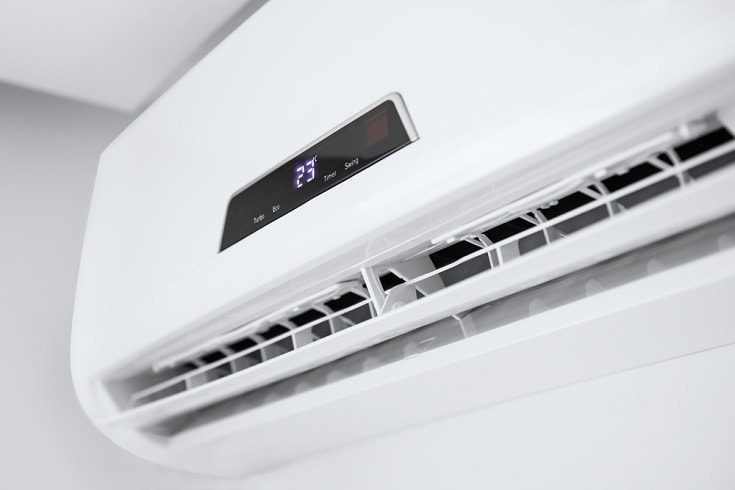
The only thing worse than not having an air conditioning system in your home is having one that isn’t working correctly. When the weather outside gets hot, the last thing you want is a system that quits—or worse, starts blowing warm or hot air.
Below you will find eight possible reasons your air conditioner may not be cooling your home. Some have easy, DIY solutions, but some may require booking an appointment with an HVAC technician.

The 8 Possible Reasons Your Air Conditioner is Not Cooling the House
1. The Thermostat is Not Functioning Properly
A simple thing that can go wrong is the thermostat that controls your air conditioner gets bumped to a different setting. This can prevent the system from kicking on until the temperature increases inside. However, if you checked the thermostat and it doesn’t make sense that the system isn’t kicking on, the thermostat may be broken. A broken thermostat is more advanced than most DIY solutions and will require a professional.
- Check the thermostat and adjust accordingly.
- Call an HVAC technician if the thermostat is adjusted to the appropriate level but still isn’t working.
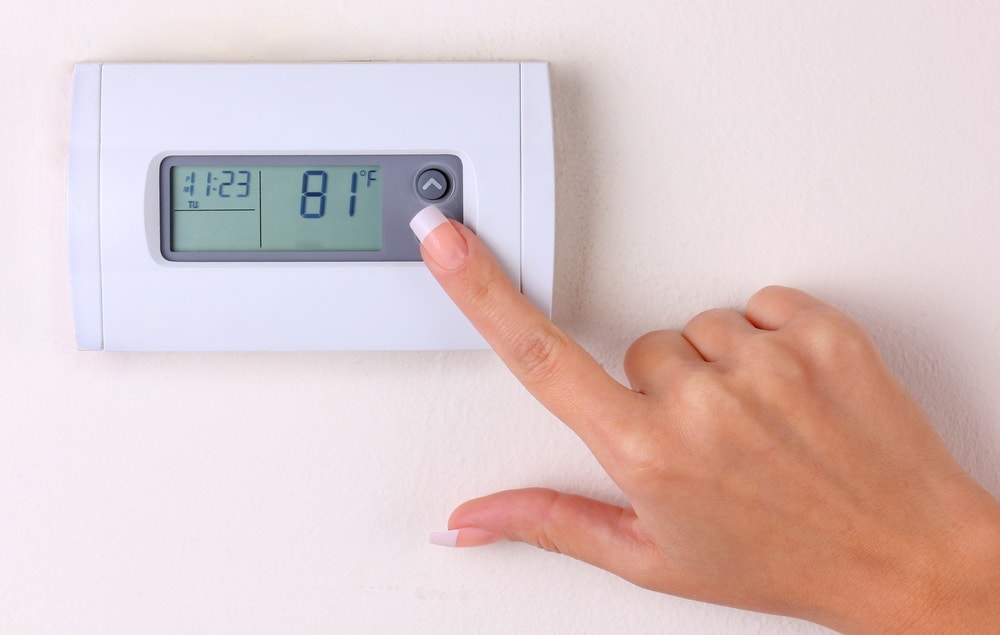
2. Air Filter is Dirty
If the air filter in your vehicle isn’t changed at regular intervals, then your fuel mileage will suffer. Eventually, a dirty air filter will also damage your engine. The same goes for your air conditioning system. If the air filter is dirty, it prevents the efficient intake of air and stresses the whole system. This results in less cooling and eventually can cause the system to shut down. Checking the air filter is a fairly straightforward DIY process in most cases.
- Clean or replace the air filter.
3. Condenser Coils are Damaged or Dirty
Simply put, during the cooling of the air in your home, the condenser coils are responsible for releasing hot air outside as heat transfer occurs. Due to their job, you will always find the condenser outside in the same compartment as the pump and motor. Before doing any DIY fixes, pick up a kit with special tools and cleaner from your local building center.
- Before trying anything—inspect the coils for obvious signs of damage because that will require an HVAC professional.
- Remove any large pieces of dirt or buildup with a coil brush, and if there are any bent fins, use the fin comb from your kit to straighten them.
- Clean the coils following the directions on the coil cleaner container.
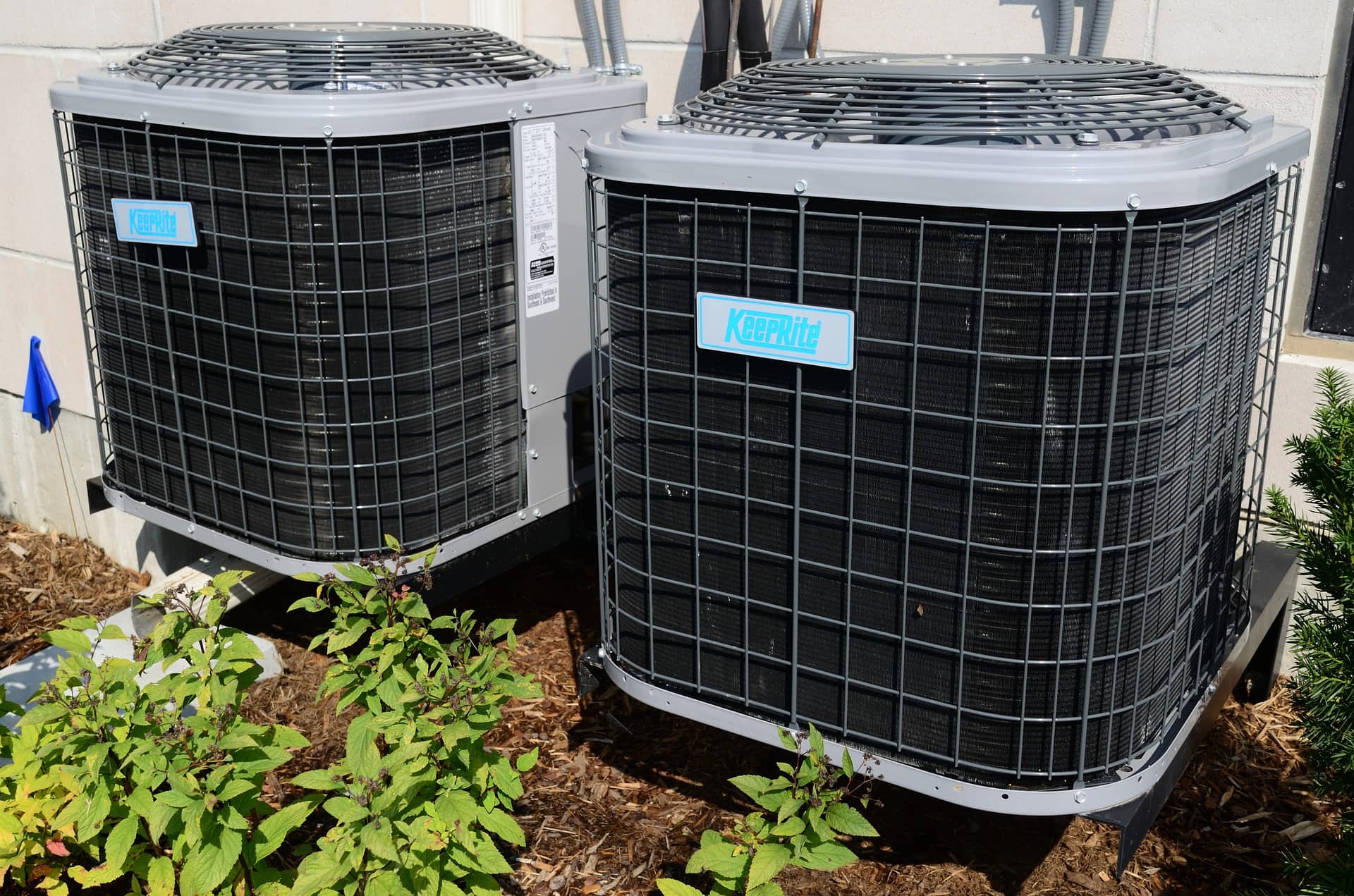
4. Frozen Evaporator Coil
If you’ve investigated the other options and nothing explains why your air conditioner is not cooling correctly, then a frozen evaporator coil could be the culprit. A few things to look for include checking the outdoor refrigerant line for ice, moisture collecting around the air handler, or checking inside the air handler to see if the evaporator coil is iced up.
- Turn off the system to allow the evaporator coil to defrost.
- Defrosting is potentially only a temporary fix. If it keeps happening, you should call an HVAC technician.
5. Improperly Sized Air Conditioning System
If your system was installed by a trusted professional, this will not likely be the issue. When a qualified technician is installing a new air conditioning system, they will account for variables such as the size of your house and even the design. This will ensure you are getting the correct size of the system. However, if you don’t know who installed the system or it was installed by someone questionable, then a second opinion wouldn’t hurt, especially if you have tested the other potential problems.
- This problem can only be properly diagnosed and fixed by a qualified professional.
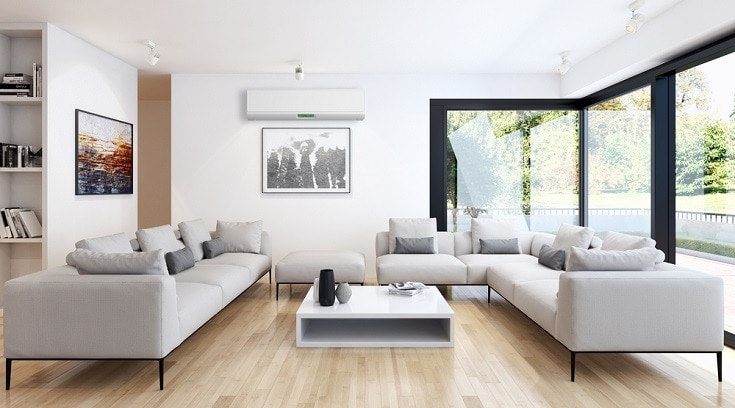
6. Refrigerant Leak
A significant component in any air conditioning system is the refrigerant. Essentially, this liquid enables the rest of the system components to do their job. Aside from a catastrophic leak—which will be a far bigger problem—you likely won’t be able to detect a leak at a glance. If you are comfortable with some more advanced DIY solutions with an air conditioning system, they make various kits to test for refrigerant leaks. Otherwise, you will need to call an HVAC technician to diagnose and fix the problem.
- Purchase a leak test kit from your local building center.
- If you find a leak, you can also get repair kits for minor repairs.
- If anything but a small leak is detected, you are better off calling in a qualified professional.
7. Damaged Pump or Motor
If the motor or pump in the air conditioning system fails or even doesn’t run at full capacity, then the rest of the system will not function properly. This potential problem is one of the more advanced problems. Unless you are comfortable working on an air conditioning system, this one is better left to a professional. However, if you are comfortable with the inner workings of the system, then there are a couple of things you can do to troubleshoot before calling in the calvary.
- Confirm that the pump is receiving power
- Check the float and gently tap the microswitch to ensure it is working correctly.
- Clean the pump and valve and check for clogs in the line.
- If any of these things confirm the pump, motor, or components are not working, you will need to call an HVAC technician.
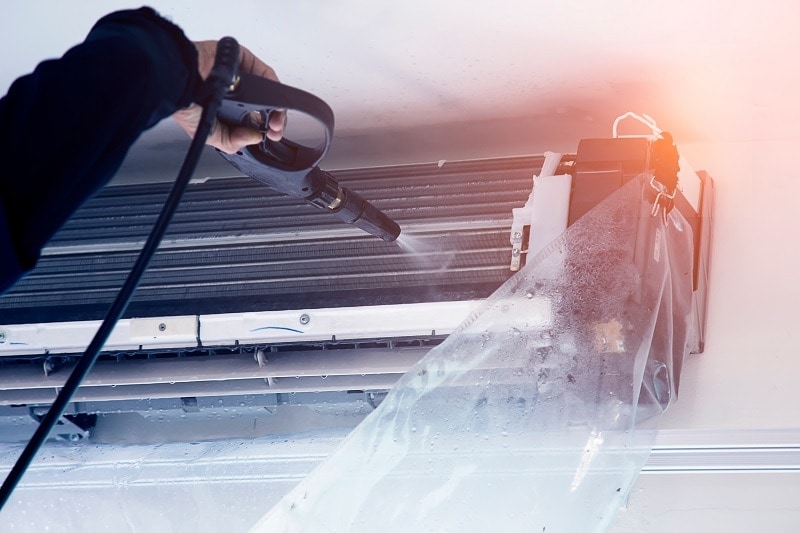
8. Leaking Ducts
If you have a central air conditioning system, ducts will become responsible for carrying the cool air throughout your home. Sometimes, these ducts can wear out or separate at a joint after the house shifts. If there is a leak somewhere in the ducting, it can leak cool air where it is not meant to be.
There is no easy way to check ducts for leaks, but it’s possible. While the system is running, go to each duct joint with a candle or lighter and hold it up. There may be a leak if the flame flickers erratically while near the joint. If you confirm a leak in the duct, you can try patching it with mastic sealant or aluminum foil tape (different from duct tape).
- Check for leaks with a candle or lighter.
- Attempt to seal the leak with mastic sealant or aluminum foil tape
- Calling an HVAC technician is not a bad idea because this can be an involved process that will go smoother with the proper knowledge.

Conclusion
Remember that a proper maintenance schedule can usually mitigate all these problems. Many HVAC companies will offer a slightly better rate on an annual or semi-annual cleaning and maintenance program. This is an added expense to your air conditioning, but it can potentially save you big bucks in the long run.
Hopefully, you have discovered only a minor problem with your air conditioning system, and it gets back to doing what it does best. If today was preemptive planning for when something goes wrong, let this be a reminder—get out there and clean that filter!
- You might also be interested in: 12 Air Conditioning Facts and Statistics
Featured Image Credit: Wstockstudio, Shutterstock
Contents
